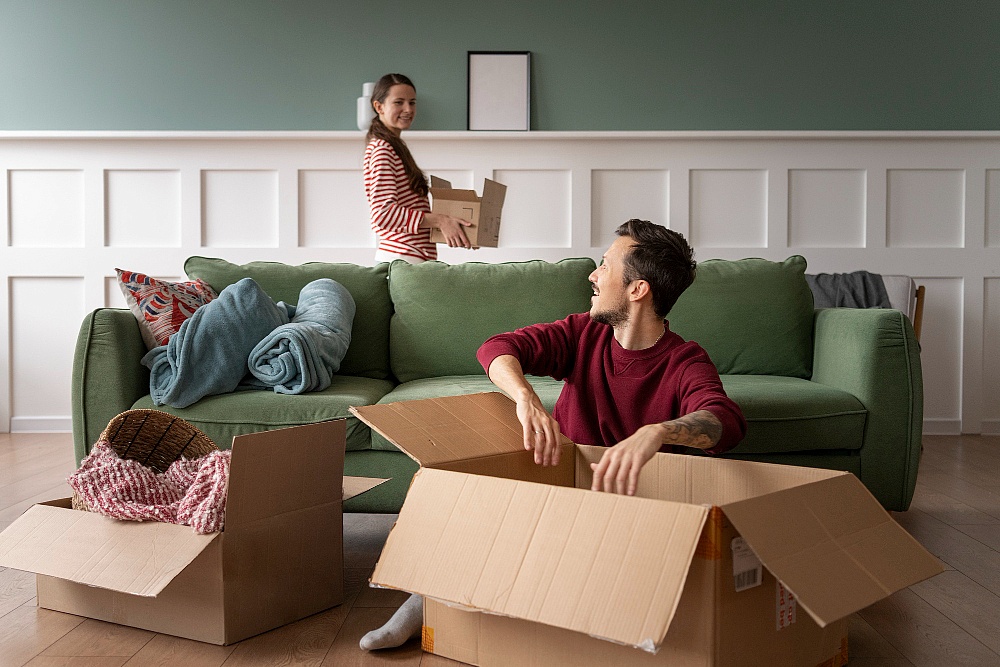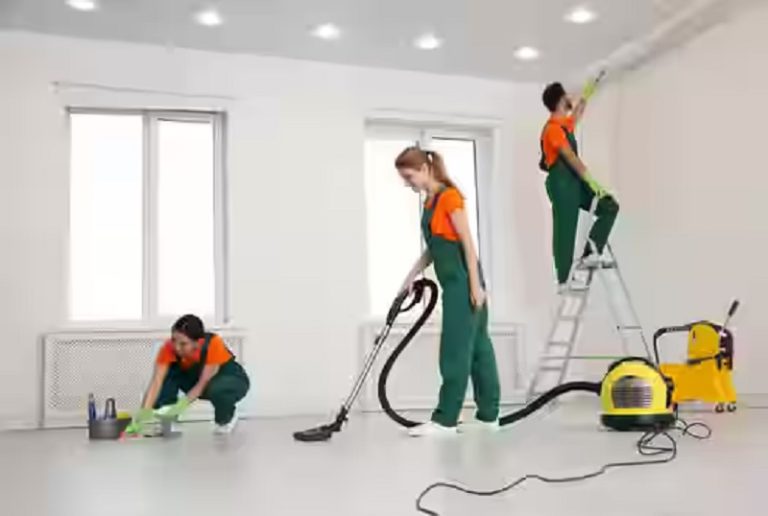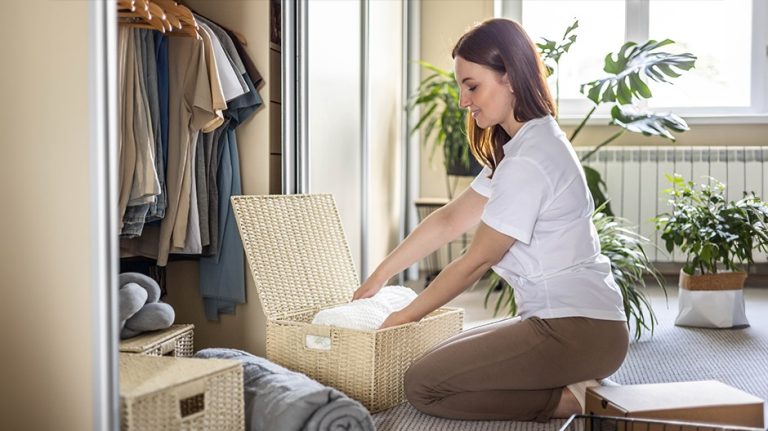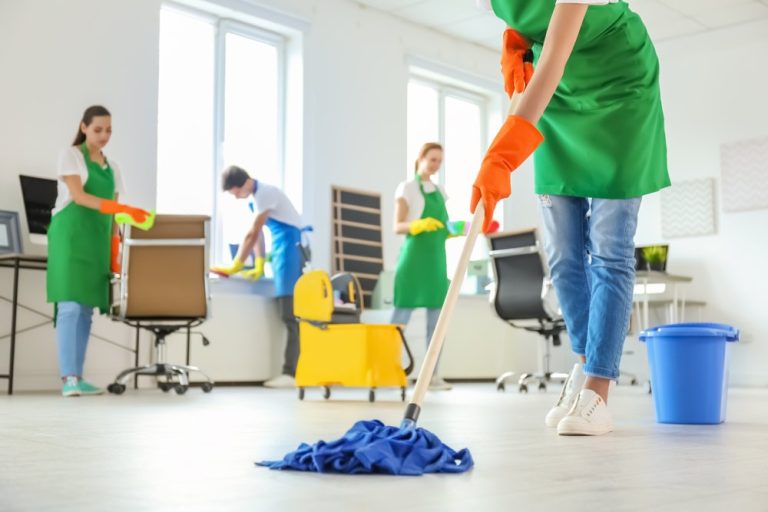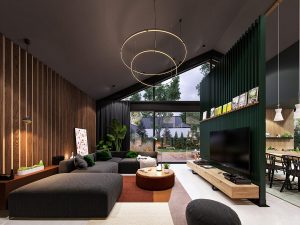A home is more than just a place where you live; it’s a sanctuary that reflects who you are, a space where you recharge and connect with loved ones. Yet, for many, the chaos of daily life gradually infiltrates the home. Over time, clutter accumulates—whether it’s old mail, unworn clothes, unused appliances, or random trinkets that no longer hold any value. This clutter doesn’t just affect the aesthetics of your space; it also impacts your mental and emotional well-being. A disorganized home can contribute to stress, overwhelm, and a lack of productivity.
Fortunately, there is a simple solution: organizing and decluttering. These two practices, though often used interchangeably, each serve a distinct purpose in transforming your home into a calm, functional, and beautiful space. By adopting the right strategies and mindset, you can significantly improve your home’s ambiance, optimize its functionality, and foster a peaceful, welcoming atmosphere.
In this guide, we will explore practical tips for organizing and decluttering your home, offering insights into how these changes can improve your daily life, bring clarity, and create a space that promotes calm and inspiration.
1. Decluttering: The First Step Toward Simplicity
Before you dive into organizing, it’s important to first declutter your home. Decluttering means removing unnecessary items that don’t serve a purpose or bring you joy. The goal is not just to clean up but to create a more intentional living space by shedding excess.
Start Small
The process of decluttering can seem overwhelming, especially if you’re faced with an entire house full of items. To make the task more manageable, start small. Begin with one room or even one category of items, such as clothes or kitchenware. For example, tackle your wardrobe by going through each item and asking yourself: Do I wear this? Is it still in good condition? Does it bring me happiness? Anything that doesn’t meet these criteria can be donated, recycled, or disposed of.
Apply the “One In, One Out” Rule
As you declutter, it’s helpful to adopt the “one in, one out” rule. For every new item you bring into your home, ensure that an old item is removed. This prevents future clutter from accumulating and helps you maintain a streamlined, organized home.
Sentimental Items
When it comes to sentimental items, the decision to part with them can be difficult. However, holding onto things simply because they evoke memories can hinder your ability to truly enjoy your space. Instead of keeping everything, curate a small collection of items that are most meaningful to you and find creative ways to display or store them. This keeps the memories intact while preventing emotional clutter from taking up valuable space.
2. The Power of Organizing: Structuring Your Space
Once you’ve decluttered, it’s time to organize. Organizing goes beyond simply putting things away—it involves creating a system that allows you to easily access, maintain, and enjoy your belongings. An organized home promotes efficiency, reduces stress, and allows you to make the most of your space.
Categorize and Prioritize
To begin organizing, first categorize your belongings. Group similar items together—such as office supplies, kitchen gadgets, or children’s toys. Then, within each category, prioritize the items based on frequency of use. For example, everyday items should be easily accessible, while less frequently used items can be stored out of sight. This principle can be applied to every room in your home, from the kitchen to the bedroom to the bathroom.
Maximize Vertical Space
If you’re dealing with limited space, consider using vertical storage options. Wall-mounted shelves, hooks, and racks can free up floor space while keeping items within easy reach. For instance, in the kitchen, wall-mounted racks for utensils or spice jars can clear up counter space. Similarly, in a bathroom, floating shelves can store toiletries without taking up valuable counter space.
Invest in Storage Solutions
Quality storage solutions are a game-changer when it comes to organizing. From stylish baskets and bins to drawer dividers and storage cabinets, investing in functional and aesthetically pleasing storage items can help keep your home tidy. Make sure the storage solutions you choose complement the design of your home and suit the specific needs of your space. For example, under-bed storage is an excellent way to make use of otherwise wasted space in a bedroom.
Declutter and Organize Regularly
Maintaining an organized home requires ongoing effort. Set aside time once a week or month to declutter and reorganize. This could mean tidying up surfaces, sorting through mail, or re-evaluating the items in your storage spaces. A consistent routine ensures that your home stays organized in the long run, reducing the stress that can build up from clutter.
3. The Psychological Benefits of a Decluttered, Organized Home
Beyond the practical advantages, organizing and decluttering have profound psychological benefits. A cluttered space can contribute to feelings of stress, anxiety, and even depression, as it may feel like there is always something needing attention. Conversely, a clean, organized environment fosters peace, calm, and mental clarity.
Improved Focus and Productivity
When your space is organized, you eliminate distractions, making it easier to focus on the task at hand. Whether you’re working from home or simply trying to relax, a clutter-free environment promotes concentration and efficiency. Studies have shown that individuals in organized environments are often more productive, as the mind isn’t constantly distracted by piles of stuff.
Reduced Stress and Anxiety
A messy home can create a sense of chaos, leaving you feeling overwhelmed and anxious. Decluttering your living space reduces these feelings by promoting a sense of order and control. An organized home can help you unwind after a long day, allowing you to relax in a peaceful setting rather than feeling stressed by clutter.
A More Positive Atmosphere
Organizing and decluttering can also transform the energy of a room or home. A tidy space is inherently more inviting and relaxing. When each item has its place and your space feels balanced, it’s easier to enjoy your surroundings. This positive atmosphere is especially important if you’re hosting guests, as it sets the tone for warmth and hospitality.
4. Sustainable Organizing: Declutter with Purpose
As we move toward a more sustainable way of living, it’s important to consider the environmental impact of our organizing efforts. While getting rid of items is necessary for decluttering, it’s essential to do so responsibly.
Donate or Sell Unwanted Items
Instead of throwing away items you no longer need, donate them to charity or sell them online. This not only keeps items out of landfills but also allows others to benefit from things you no longer use. Many organizations accept clothing, furniture, books, and other household items, and you can even make a little extra money by selling gently used items through platforms like eBay or Facebook Marketplace.
Recycle When Possible
For items that can’t be donated or sold, make sure to recycle them appropriately. Cardboard, paper, plastic, and certain metals can often be recycled if disposed of properly. In the case of broken electronics, check for e-waste recycling programs in your area to ensure they’re disposed of safely and sustainably.
Be Mindful of New Purchases
Once you’ve decluttered, be more mindful of future purchases. Consider whether an item is truly necessary before adding it to your home. By purchasing fewer, more intentional items, you can prevent clutter from accumulating again. Sustainable shopping habits, such as buying secondhand or choosing eco-friendly products, can also contribute to a more organized and environmentally conscious lifestyle.
5. Create Lasting Habits for a Clutter-Free Home
To maintain a clutter-free home, it’s crucial to develop habits that support ongoing organization. Here are some simple habits that can make a big difference:
-
Daily Tidying: Spend a few minutes each day tidying up common areas. Put away dishes, fold laundry, and organize any stray items that have accumulated throughout the day.
-
Assign Tasks: If you share your home with others, assign specific cleaning or organizing tasks to each person. Regular responsibilities help maintain an orderly environment.
-
Be Intentional with New Items: Before acquiring new possessions, always consider whether they truly add value to your life and home. Implementing this thoughtful approach to purchases will prevent unnecessary clutter from building up.
Conclusion
Improving your home through organizing and decluttering isn’t just about creating a neat and tidy environment—it’s about enhancing your overall quality of life. A well-organized home promotes a sense of calm, improves productivity, and helps you feel more in control. By taking the time to declutter, invest in thoughtful storage solutions, and develop sustainable organizing habits, you can transform your space into a serene sanctuary. The benefits extend far beyond just aesthetics; a clean, clutter-free home is a foundation for a more peaceful, intentional, and fulfilling life.

